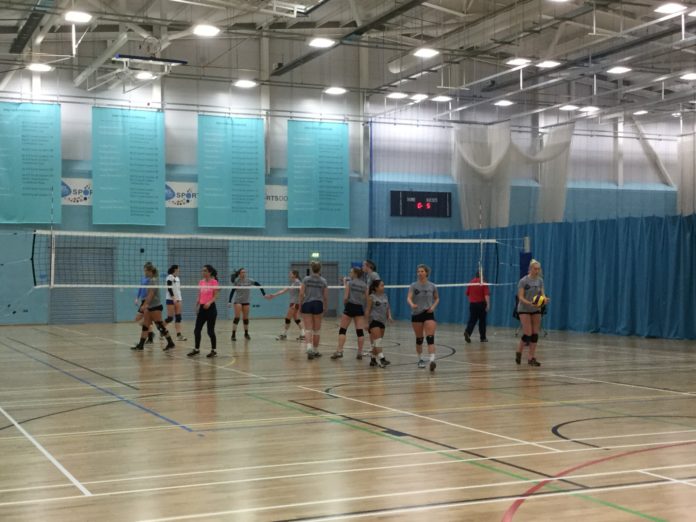University of East London Volleyball Coach, Ian Legrand, suggests that psychology plays a significant role in sport. The new coach, who arrived a month ago alongside fellow Coach Jefferson Williams, believes that the psychological implications in sport increases as the quality of opposition increases.
Under-Pressure
“I think when you get two teams who are of an equal technical, tactical ability, it’s the emotional and psychological side of things that are going to be the difference. It’s going to be who’s going to make those fine decisions under-pressure. The higher up you go, the more the teams are going to be equally matched physically, technically and tactically, so then it does become some of the decision-making and the problem-solving. So the psychological issues become more important the higher up you go,” Legrand said.
Legrand has instilled several psychological methods to improve the physical performances of the women’s team and exclaimed that he has seen some progress.
“Certainly with the second team, there’s an element of learning as they go along. Progress in sport tends to be incremental. The occasional freak-result like that Bob Beamon in the long-jump back in ’68, which was just a jump that killed-off the world record for 30 years, but those sorts of results in sport tend to be a minority and most of that progress is gradual. I would suggests it’s probably the fact that the girls have just got a little bit more experience under their belt, so it will be interesting to see where they end up in the next few matches,” he said.
Move Forward
UEL’s Men’s Volleyball Team’s five-match winning-streak came to an end at the hands of, The University of Exeter on Wednesday. When asked how the side would move forward from the demoralising defeat, Legrand said.
“I think to put it into context, draw a line under it and move on – a lesson learned. How did they focus on the game, did they see it as, ‘oh it’s only Exeter’ and by the time the momentum is against you, you suddenly realise you are two sets down. I think Jeff and myself will probably think if we are going to get a freak result, we would rather it be in league-play than in the play-offs.”
Nine Week Principles
Legrand also proposed three main areas of focus known as, the Nine Week Principles, leading up to the BUCS Final 8s in March. The Women’s first team were central in recognising the principles and have grown in these target areas.
“The players themselves identified them and what they were. Some things that were at work within our control so they can judge themselves on those principles. It has got nothing to do with the opposition, or the weather, or time of day, it is all within our control. The girls identified those things as, ‘if we were successful in those areas, we would be successful as a team’. We have worked on them and developed on some areas, we have tried to define them a little. On a weekly basis, they score themselves against the principles, so it is a very worthwhile exercise and it keeps them focused on the key things they need to do on performance,” Legrand said.
The Women’s team will be drawing on their psychological aspects with their BUCS Premier South Title still up for grabs. They have three weeks before their target competition, Final 8s, in which they are aiming for a semi-final spot to be put up as one of the best teams in the country.




